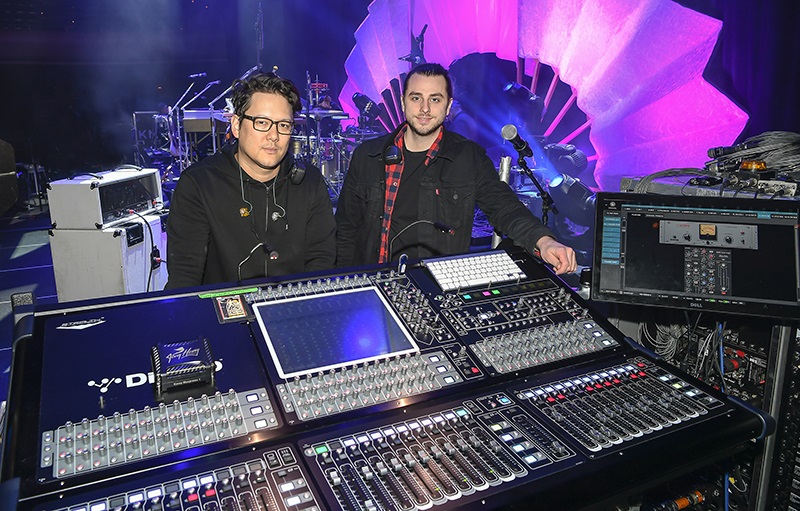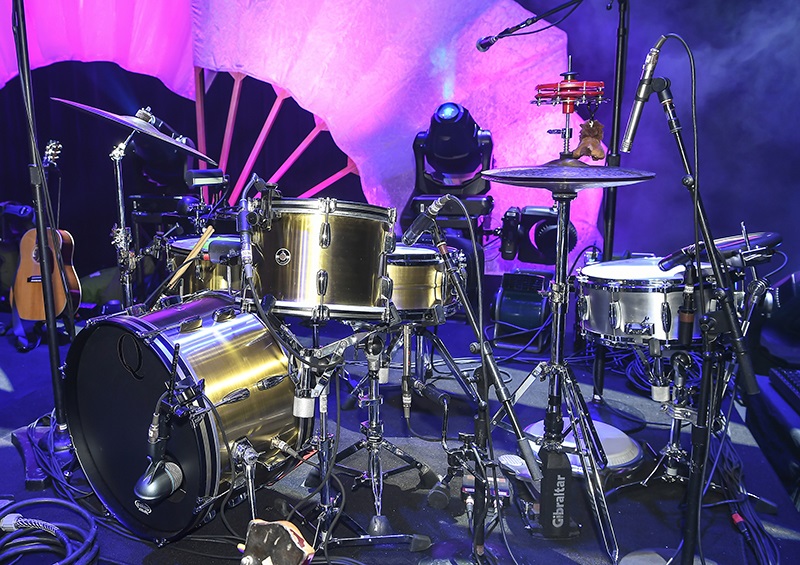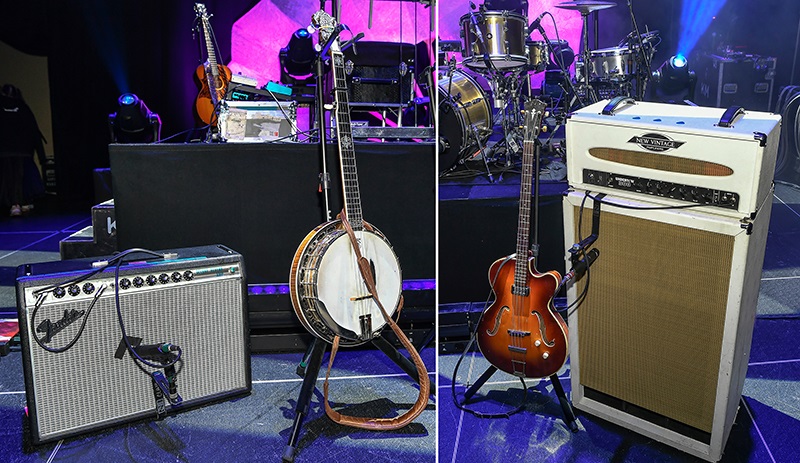
Group Accomplishment
Supported by Clair Global, the tour currently isn’t carrying its own house PA. “We have a second leg coming up in the early fall, and looking at the venues, it just makes sense to carry the package we have been and hire local gear when we need to,” Bing notes. “As much as I’d love to have our own system on the truck, I’d rather have the space for more lighting.”
That said, things on the audio front will continue to evolve. “I have my preferences, but the sound sources coming off stage are so good. The guitar mics are Shure SM57s and they’re doing great,” he says, conceding that he’s considered swapping out other mics, such as those on the toms: “They aren’t my favorites, but our drummer tunes his kit so well that the sound’s really consistent. And it’s not about what I prefer, it’s what they’re used to and getting the right sound, and we’re accomplishing that with the tools and resources we have.”

One resource not employed is backing tracks, because no one sees any need for them. “Our drummer might trigger a little shaker track, but almost everything is played live,” Bing says, with VanVolkenburgh adding that the issue is a priority with Musgraves: “She’d rather a player on stage play something than have a computer do it.”
Consequently, there’s a lot going on, with 56 total inputs. That, and Bing’s dual gig, prompted the recent addition of audio technician David Lim to serve as an extra set of hands, eyes and ears – on and off deck – at any given part of the day.
Getting The Handle
For Lim, the lack of tracks is both unusual and refreshing. Since 2015 he’s primarily been mixing front of house and tour managing hip-hop acts as well as programming Ableton rigs.

“This is the first tour I’ve been on – or that I’ve seen – in a long time that’s not heavily reliant on tracks,” he states. “There are a couple things triggered off a drum pad, but nothing with time code and usually there’s no click. It’s refreshing to see a band just play and not be locked down. I think it’s a lot of work for them, but probably more fun because they get to play all the parts and feel things out.”
Lim has also kept himself busy with other endeavors: “I was mixing another artist last night and had a 5 am flight from Texas to Nashville, so I haven’t slept much, but I’m getting on the bus tonight to go back out with Kacey and the crew to Dallas and Austin.”
Granted, on show days he’s got his hands full as well. “Primarily I’m patching the stage. I actually thought I was going to be working more as a front of house tech, but Travis’ world comes together pretty quickly. On stage there’s a lot going on so during shows I’m changing out microphones and helping Dalton troubleshoot.”
Lim also mixes front of house or monitors for support acts when necessary. “Most of our openers have had engineers at front of house, but the ones that don’t I’m mixing, otherwise I’m at monitors.”
He also mixed a Musgraves show when Bing was called away for an emergency. “It was kind of being thrown into the fire, jumping into his show file and making that work, but I think it went pretty well with a day of notice,” he says. “But I’m usually walking through the house for the first couple of songs and giving Travis any notes from up front or the balcony, so I feel like I have a good handle on what the show is supposed to sound like.”
It’s a role that’s particularly important on this tour, and an extension of what Bing describes as his go to way of working whether he’s mixing front of house or monitors. “My general approach with artists has always been, if something seems a little off, to talk to the musicians first and see what we can do with the actual sound they’re creating. I could EQ each instrument and save it into a snapshot – many engineers do – but (on this tour) I think I’d mix myself into a corner.
“I want the band to be able to play as consistently as possible every day and to work it out on their end,” he concludes. “That way the source gets better for each song, my job gets easier, and it’s going to sound better for everyone.”
